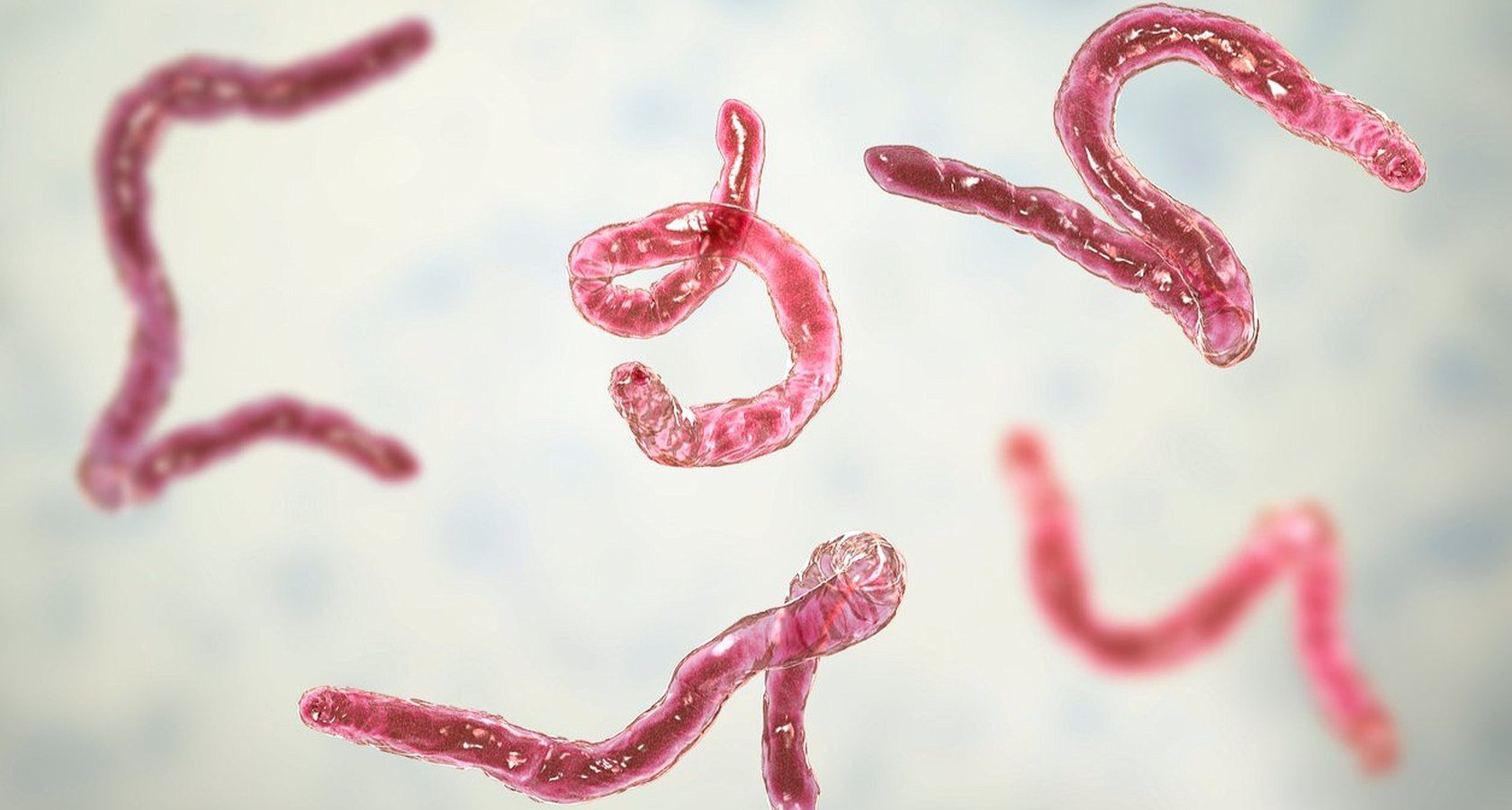Gut-Brain Axis: The Connection Between Your Gut & Mental Health
Most people think of the gut as just a digestive organ, but it also functions as the body’s second brain. It actually has its own nervous system, produces neurotransmitters like serotonin and dopamine, and constantly sends signals to the brain through the vagus nerve. In fact, nearly 90% of the communication along the gut-brain axis travels from the gut to the brain—not the other way around. That means what happens in the gut doesn’t stay in the gut; it can influence everything from mood and mental clarity to how we experience stress and anxiety. If digestion is off, or if the gut microbiome isn’t in good shape, those signals can start to misfire, leading to issues like anxiety, depression, brain fog, and even more. Fortunately, by taking the time to consider and support your gut health, you can directly impact how you feel, think, and function. In the next sections, we’ll explore how the gut and brain communicate, the impact of gut health on mental health, and practical ways to support this connection with a functional medicine approach.
The Science Behind the Gut-Brain Axis
Understanding the communication between our gut and brain reveals how deeply interconnected our mental and digestive health truly are. The two primary mechanisms involved in this dialogue are the vagus nerve and neurotransmitters produced in the gut.
The Vagus Nerve
The vagus (Latin for “wanderer”) nerve is the longest cranial nerve in the body, extending from the brainstem down to the abdomen, with branches that innervate the many organs including the heart, lungs, and digestive tract. It’s known for its role in the parasympathetic nervous system, which helps regulate rest, digestion, and recovery. Think of it as the body’s “information highway,” constantly transmitting signals between the brain and the gut. Interestingly though, nearly 80% of the vagus nerve’s fibers carry messages from the gut to the brain, not the other way around, showing just how much influence gut health has over mood, stress response, and cognitive function.1
Furthermore, recent studies highlight the therapeutic potential of the vagus nerve in gut-related conditions. A clinical trial on Inflammatory bowel disease (IBD) found that non-invasive vagus nerve stimulation (VNS) significantly reduced gut inflammation and improved symptoms.2 Research is now exploring whether vagus nerve stimulation could be used as a treatment for both digestive disorders and mood imbalances.3
Neurotransmitters
In addition to the vagus nerve, the gut influences brain function through its production of neurotransmitters. About 90% of the body's serotonin (your happy neurotransmitter that regulates mood, sleep, and digestion) is synthesized in the gastrointestinal tract by specialized enterochromaffin cells.4 While this type of serotonin doesn’t cross the blood-brain barrier, it still actively participates in neurotransmitter signaling through the vagus nerve as well as other gut microbiota interactions that influence gut motility, and overall brain chemistry.
Beyond serotonin, the gut microbiome also contributes to the production of gamma-aminobutyric acid (GABA), the brain’s main calming neurotransmitter, that helps regulate stress and anxiety. Certain bacteria, like Lactobacillus and Bifidobacterium species, have been shown to support GABA production along with dopamine, another neurotransmitter essential for mood regulation.5 Research has found that people with IBS and depression tend to have lower levels of gut bacteria involved in making GABA, exhibiting a link between gut microbiome diversity and mental health.6 Ongoing inflammation in the gut may also interfere with serotonin levels and ramp up the body’s stress response, both of which have been tied to mood disorders like anxiety and depression.7
How Gut Health Impacts Mental Well-Being
The gut’s role in neurotransmitter production and immune regulation means that when digestion is disrupted, the effects often don’t stop in the gut, but also extend to the brain. Conditions like Conditions like irritable bowel syndrome (IBS), small intestinal bacterial overgrowth (SIBO), intestinal permeability (leaky gut syndrome), and celiac disease (leaky gut syndrome), and celiac disease have all been linked to higher rates of anxiety, depression, and cognitive dysfunction. Whether through inflammation, nutrient malabsorption, or direct microbial signaling to the brain, these conditions can contribute to chronic stress, brain fog, and emotional dysregulation.
Irritable Bowel Syndrome (IBS) and Mental Health
IBS is often described as a gut-brain disorder rather than just a digestive issue. Individuals with IBS are significantly more likely to experience anxiety, depression, and even heightened stress sensitivity, which suggests that gut dysfunction is affecting the brain’s ability to regulate emotions. One reason for this is that IBS is associated with alterations in the gut microbiota, particularly a reduction in beneficial bacteria that help regulate inflammation and neurotransmitter balance.8 In addition to microbial imbalances, IBS is heavily associated with dysregulated gut motility, which can alter serotonin signaling. Since serotonin plays a key role in both gut and brain function, this could help explain why people with IBS often experience mood disorders like anxiety and depression.8 Treatments that target the gut, such as probiotics, dietary modifications, and gut-directed hypnotherapy, have been shown to improve both IBS symptoms and mental health conditions.
Small Intestinal Bacterial Overgrowth (SIBO) and Mental Health
SIBO occurs when excess bacteria colonize the small intestine, an area that should have relatively low bacterial presence. This overgrowth can interfere with nutrient absorption, damage the gut lining, and increase inflammation. Studies show that many people with IBS also have SIBO, and since IBS is strongly associated with anxiety and depression, there may be a shared underlying gut-brain mechanism.9 Additionally, SIBO has been linked to lower levels of key neurotransmitter precursors such as tryptophan, which is essential for serotonin production. One study exhibited how antimicrobial treatment for SIBO improved tryptophan metabolism and mood of patients with small intestinal bacterial overgrowth.10 This could explain why individuals with SIBO often report symptoms like brain fog, fatigue, and low mood. You can learn more about SIBO and effective functional medicine approaches to treating it here.
Leaky Gut and the Brain
Increased intestinal permeability, otherwise known as ‘leaky gut’ occurs when the tight junctions in the intestinal lining become compromised, allowing toxins, bacteria, and undigested food particles to enter the bloodstream. This triggers an immune response and systemic inflammation, which has been implicated in many conditions including depression and cognitive decline. Studies show that individuals with major depressive disorder often have elevated markers of gut permeability, suggesting that chronic inflammation originating in the gut may be contributing to mood dysregulation.11 In addition to inflammation, intestinal permeability can impair neurotransmitter function by disrupting the gut microbiome’s ability to produce serotonin, dopamine, and altering levels of brain-derived neurotrophic factor in the brain.12 Brain-derived neurotrophic factor (BDNF) is a protein that plays a crucial role in brain health and function. It’s involved in the process of learning and memory, mood regulation, and neuroprotection. This connection between gut permeability and brain function exhibits the importance of a healthy gut barrier for good mental health.
Celiac Disease, Gluten Sensitivity and Mood Disorders
Celiac disease is an autoimmune condition triggered by gluten, where ingestion leads to intestinal inflammation and nutrient malabsorption. While it is often diagnosed based on digestive symptoms, research suggests that neurological and psychiatric symptoms can appear even in the absence of gut-related complaints. Studies show that individuals with celiac disease have a significantly higher risk of developing depression and anxiety, possibly due to chronic inflammation, gut permeability, and deficiencies in key nutrients like B vitamins and magnesium.13 Though even without the diagnosis of celiac disease, there is still a significant association between gluten-related disorders and mood disturbances.
Non-celiac gluten sensitivity (NCGS) is a type of food sensitivity, where individuals experience negative symptoms after consuming gluten despite not having celiac disease or a wheat allergy. These symptoms mirror those seen in other food sensitivities such as digestive discomfort, brain fog, fatigue, mood changes, joint pain, skin issues, or other immune and neurological responses. A systematic review and meta-analysis highlighted that individuals with both celiac disease and non-celiac gluten sensitivity (NCGS) often experience mood symptoms, including depression and anxiety. The study noted that "a growing body of evidence suggests that mood symptoms are associated with a spectrum of gluten-related disorders."14 Elevated levels of gluten-related antibodies have been identified in patients with bipolar disorder, major depressive disorder, and schizophrenia. Specifically, episodes of acute mania have been associated with increased serum levels of antibodies against gliadin, a component of gluten.14 These findings suggest that gluten may contribute to neuroinflammation in susceptible individuals, reinforcing the importance of gut health relating to mental health.
Hidden Infections That Impact Mental Health
While gut health concerns like IBS, SIBO, and leaky gut are common contributors to mood and cognitive symptoms, they’re not always the whole story. At CCFM, we also investigate less obvious triggers that can impact both the gut and the brain including mold-related illness, chronic yeast overgrowth, parasites, and vector-borne infections like Lyme disease and co-infections. These hidden infections can contribute to gut dysbiosis, immune dysregulation, and chronic inflammation, all of which affect the gut-brain axis. Lyme disease, for example, has been associated with distinct alterations in the gut microbiome, including an increase in Blautia bacteria and a decrease in Bacteroides species, which are crucial for regulating digestion, inflammation, and immune responses.15 Lyme and tick-borne coinfections can directly infect the gut and cause a wide range of GI issues. Furthermore, a 2021 study found that individuals with Lyme disease had significantly higher rates of mood disorders and suicidal behaviors, particularly after multiple infections.16
In some individuals, unresolved infections or environmental exposures may be driving persistent symptoms like fatigue, brain fog, anxiety, or digestive issues, even after the more common gut interventions have been addressed. Another example is mycotoxins from mold that can damage the intestinal lining, impair nutrient absorption by degrading villi, and contribute to increased intestinal permeability, or "leaky gut." These physiological effects likely play a role in the psychological symptoms often reported with mold exposure, including increased rates of anxiety, depression, and cognitive dysfunction (symptoms that have shown to improve once the exposure is removed).¹⁷ These correlations show the importance of sometimes considering deeper, often overlooked contributors to gut-brain dysfunction. If symptoms aren’t improving with standard gut protocols, it may be time to look beyond the usual suspects as hidden infections and environmental triggers are common missing pieces in more complex gut-brain cases.
How Inflammation in the Gut Affects the Brain
When gut health is compromised, it can certainly lead to bloating or digestive discomfort, but it can also directly affect how you think, feel, and function (even in the absence of gut symptoms). Chronic inflammation from gut imbalances like SIBO, leaky gut, or celiac disease can throw off neurotransmitter production, fuel stress responses, and contribute to brain fog, anxiety, and low mood. Research continues to reveal how immune activation, gut microbiome imbalances, and nutrient deficiencies fuel mental health challenges, reinforcing the need for a functional medicine approach that addresses both gut and brain health. By supporting gut health (reducing inflammation, restoring microbial balance, and strengthening the gut barrier) you’re not just improving digestion, but also creating a foundation for better mental resilience, sharper cognition, and more stable moods.
Ways to Support a Healthy Gut-Brain Connection
How do you actually support your gut-brain connection in daily life? Research continues to show that what you eat, how you manage stress, and even how well you sleep and move all influence gut health and, in turn, mental health. Since the gut plays a role in neurotransmitter production, inflammation regulation, and stress resilience, making intentional choices in these areas can have a profound impact on mood, cognitive function, and emotional stability. Let’s dive deeper into the most effective ways to support a healthy gut-brain axis, from diet and probiotics to stress management, sleep, and movement.
Diet and Probiotics for Microbiome Health
A gut-supportive diet is one of the most effective ways to influence mental health, thanks to its impact on microbial diversity, inflammation, and neurotransmitter production. Diets rich in fiber, prebiotics, and fermented foods support beneficial bacteria, which in turn help produce GABA, serotonin, and dopamine which are critical neurotransmitters for mood stability and cognitive function. Studies have shown that people who consume a Mediterranean-style diet, rich in polyphenols and omega-3 fatty acids, have lower rates of depression and anxiety compared to those eating a processed, high-sugar diet.18
Probiotics also play a direct role in mental health. Specific strains, often referred to as psychobiotics, have been shown to reduce symptoms of anxiety and depression by modulating gut bacteria and lowering inflammation.19 Lactobacillus and Bifidobacterium species, found in fermented foods and high-quality probiotic supplements, have been associated with reduced stress, improved mood, and even enhanced cognitive flexibility.20 While diet alone may not be a cure-all, strategically choosing foods that support gut health is a foundational step toward better mental resilience. In clinical practice, we combine dietary strategies (like increasing fiber, prebiotics, probiotics, and fermented foods) with a more personalized approach that includes identifying and addressing dysbiosis when needed. Stool testing, symptom patterns, and health history can help pinpoint microbial imbalances, guiding more targeted interventions to restore balance and reduce inflammation at the root. For more in-depth recommendations on gut-friendly nutrition, including ‘gut friendly’ meal plan, see our ‘Gut Health Diet & Nutritional Recommendations' page.
Stress Management and Gut-Brain Health
Chronic stress doesn’t just take a toll on the mind but directly impacts gut function, microbial diversity, and inflammation levels, all of which can contribute to anxiety, depression, and cognitive fog. The gut-brain axis is highly sensitive to stress, with cortisol and other stress hormones altering gut motility, increasing intestinal permeability ("leaky gut"), and shifting the gut microbiome toward a pro-inflammatory state. Over time, these changes can disrupt neurotransmitter balance, weaken the gut lining, and contribute to systemic inflammation, all of which have been linked to mood disorders as mentioned earlier.
On the other hand, practices that regulate the nervous system such as meditation, breathwork, and mindful eating, support the gut-brain connection by activating the parasympathetic ("rest-and-digest") response. Mindfulness-based interventions have been shown to reduce gut-related anxiety, improve IBS symptoms, and support microbial balance.21 Breathwork techniques like diaphragmatic breathing can further enhance vagus nerve activation, which not only improves digestion but also lowers inflammation and enhances relaxation.21
Sleep and Movement in Gut-Brain Function
How well we sleep and how often we move have a significant influence on the health of our gut brain axis. Poor sleep quality has been linked to increased intestinal permeability, gut dysbiosis, and a greater risk of mood disorders.22 Since circadian rhythms regulate digestion, disrupted sleep patterns (whether from irregular schedules, late-night eating, or too much blue light exposure) can negatively impact gut motility, leading to symptoms like bloating, constipation, or increased gut inflammation, ultimately affecting mental health. Prioritizing consistent sleep patterns, limiting screens before bed, and optimizing your sleep environment can help support both gut health and mental health.
Regular movement is also important for gut function and mood regulation. Low to moderate intensity exercise, like walking, yoga, or resistance training, has been shown to increase microbial diversity, enhance gut motility, and reduce inflammation. Aerobic movement and getting your heart rate up actually boosts the production of brain-derived neurotrophic factor (BDNF), which a protein essential for cognitive function, memory, and mood.23 Even something as simple as a 10-minute post meal walk can improve digestion and regulate blood sugar, preventing blood sugar spikes that contribute to brain fog and mood swings. That being said, excessive high-intensity exercise without proper recovery (overtraining) can increase gut permeability and inflammation,24 so finding a balanced approach to movement is important. For a more in-depth look at exercise, stress management, and other lifestyle tools that have been shown to benefit gut health, visit our Lifestyle Tips for Maintaining a Healthy Gut page.
Prioritizing Gut Health for Mental Health, Mood, and Cognitive Function
The gut-brain axis is a fascinating system that influences how we think, feel, and function every day. From neurotransmitter production to inflammation regulation, this gut-brain connection plays a central role in mental health, cognitive function, and mood regulation. When gut health is compromised (whether due to dysbiosis, increased intestinal permeability, or chronic inflammation) people often experience mood related concerns like anxiety, depression, and brain fog in addition to or even in lieu of digestive symptoms.
While addressing gut health isn’t always simple, functional medicine offers a personalized, root-cause approach to understanding the underlying drivers of gut-brain dysfunction. With proper testing and targeted strategies, like dietary interventions, microbiome support, nervous system regulation, and lifestyle adjustments, it’s absolutely possible to improve both gut and mental health. While the path to healing can take time, gaining insight into your own gut health and making informed, intentional changes can be transformative for long term mental health. You can learn more about CCFMs ‘Functional Medicine Approach to Gut Heath’ here.
References:
- Bonaz B, Bazin T, Pellissier S. The Vagus Nerve at the Interface of the Microbiota-Gut-Brain Axis. Front Neurosci. 2018;12. doi:10.3389/fnins.2018.00049
- Bonaz B, Sinniger V, Pellissier S. Vagus nerve stimulation: a new promising therapeutic tool in inflammatory bowel disease. J Intern Med. 2017;282(1):46-63. doi:10.1111/joim.12611
- Kaniusas E, Kampusch S, Tittgemeyer M, et al. Current Directions in the Auricular Vagus Nerve Stimulation I – A Physiological Perspective. Front Neurosci. 2019;13. doi:10.3389/fnins.2019.00854
- Microbes Help Produce Serotonin in Gut. California Institute of Technology. April 9, 2015. https://www.caltech.edu/about/news/microbes-help-produce-serotonin-gut-46495
- Miri S, Yeo J, Abubaker S, Hammami R. Neuromicrobiology, an emerging neurometabolic facet of the gut microbiome? Front Microbiol. 2023;14. doi:10.3389/fmicb.2023.1098412
- Frontiers | Systematic Review of Gut Microbiota and Major Depression. https://www.frontiersin.org/journals/psychiatry/articles/10.3389/fpsyt.2019.00034/full
- González Delgado S, Garza-Veloz I, Trejo-Vazquez F, Martinez-Fierro ML. Interplay between Serotonin, Immune Response, and Intestinal Dysbiosis in Inflammatory Bowel Disease. Int J Mol Sci. 2022;23(24):15632. doi:10.3390/ijms232415632
- Chen M, Ruan G, Chen L, et al. Neurotransmitter and Intestinal Interactions: Focus on the Microbiota-Gut-Brain Axis in Irritable Bowel Syndrome. Front Endocrinol. 2022;13:817100. doi:10.3389/fendo.2022.817100
- Takakura W, Pimentel M. Small Intestinal Bacterial Overgrowth and Irritable Bowel Syndrome – An Update. Front Psychiatry. 2020;11:664. doi:10.3389/fpsyt.2020.00664
- Chojnacki C, Popławski T, Konrad P, Fila M, Błasiak J, Chojnacki J. Antimicrobial treatment improves tryptophan metabolism and mood of patients with small intestinal bacterial overgrowth. Nutr Metab. 2022;19(1):66. doi:10.1186/s12986-022-00700-5
- Caso JR, MacDowell KS, González-Pinto A, et al. Gut microbiota, innate immune pathways, and inflammatory control mechanisms in patients with major depressive disorder. Transl Psychiatry. 2021;11(1):1-10. doi:10.1038/s41398-021-01755-3
- Dicks LMT. Gut Bacteria and Neurotransmitters. Microorganisms. 2022;10(9):1838. doi:10.3390/microorganisms10091838
- Lebwohl B, Haggård L, Emilsson L, et al. Psychiatric Disorders in Patients With a Diagnosis of Celiac Disease During Childhood From 1973 to 2016. Clin Gastroenterol Hepatol. 2021;19(10):2093-2101.e13. doi:10.1016/j.cgh.2020.08.018
- Busby E, Bold J, Fellows L, Rostami K. Mood Disorders and Gluten: It’s Not All in Your Mind! A Systematic Review with Meta-Analysis. Nutrients. 2018;10(11):1708. doi:10.3390/nu10111708
- Morrissette M, Pitt N, González A, et al. A Distinct Microbiome Signature in Posttreatment Lyme Disease Patients. mBio. 2020;11(5):e02310-20. doi:10.1128/mBio.02310-20
- Fallon BA, Madsen T, Erlangsen A, Benros ME. Lyme Borreliosis and Associations With Mental Disorders and Suicidal Behavior: A Nationwide Danish Cohort Study. Am J Psychiatry. 2021;178(10):921-931. doi:10.1176/appi.ajp.2021.20091347
- Harding CF, Pytte CL, Page KG, et al. Mold inhalation causes innate immune activation, neural, cognitive and emotional dysfunction. Brain Behav Immun. 2020;87:218-228. doi:10.1016/j.bbi.2019.11.006
- Lassale C, Batty GD, Baghdadli A, et al. Healthy dietary indices and risk of depressive outcomes: a systematic review and meta-analysis of observational studies. Mol Psychiatry. 2019;24(7):965-986. doi:10.1038/s41380-018-0237-8
- Dinan TG, Stanton C, Cryan JF. Psychobiotics: A Novel Class of Psychotropic. Biol Psychiatry. 2013;74(10):720-726. doi:10.1016/j.biopsych.2013.05.001
- Salami M. Interplay of Good Bacteria and Central Nervous System: Cognitive Aspects and Mechanistic Considerations. Front Neurosci. 2021;15. doi:10.3389/fnins.2021.613120
- Baboș CI, Leucuța DC, Dumitrașcu DL. Meditation and Irritable Bowel Syndrome, a Systematic Review and Meta-Analysis. J Clin Med. 2022;11(21):6516. doi:10.3390/jcm11216516
- Sun J, Fang D, Wang Z, Liu Y. Sleep Deprivation and Gut Microbiota Dysbiosis: Current Understandings and Implications. Int J Mol Sci. 2023;24(11):9603. doi:10.3390/ijms24119603
- Szuhany KL, Bugatti M, Otto MW. A meta-analytic review of the effects of exercise on brain-derived neurotrophic factor. J Psychiatr Res. 2015;60:56-64. doi:10.1016/j.jpsychires.2014.10.003
- Clauss M, Gérard P, Mosca A, Leclerc M. Interplay Between Exercise and Gut Microbiome in the Context of Human Health and Performance. Front Nutr. 2021;8:637010. doi:10.3389/fnut.2021.637010





